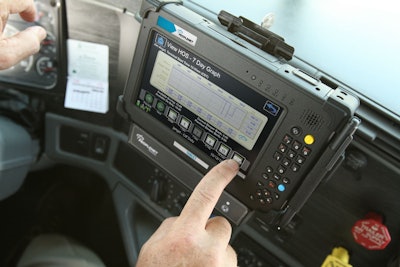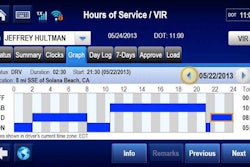
But, the agency said then and now, truck operators will recoup those costs and then some each year in time, filing work and money on paper logs. Per its estimates, drivers will save $809 a year, broken down as: $623 saved annually on time spent filling out paper logs and sending them to carriers, $144 on time spent on so-called “clerical time” and $42 a year on paper logs.
Public commenters subsequently took the agency to task on those numbers, saying FMCSA failed to account for unmeasured but costly impacts to the industry from an ELD mandate, such as greater driver turnover, extra compliance personnel, additional driver training, device maintenance and more.
Commenters instead placed the annual costs of compliance at between $800 and $6,000, much higher than the “very conservative approach,” said commenters, to ELD costs taken by FMCSA in its proposed rule.
And to commenters’ points, FMCSA says it took steps in the final version of the ELD mandate to lower costs of compliance, chief among those measures nixing the requirement that the systems have telematics functionality. That means compliant devices will not need to have cellular service.
That lowers the cost of compliance in two ways: Lowering the initial price tag of compliant devices and removing the effective requirement to pay for a monthly subscription fee.
FMCSA’s 2014 proposal required such connectivity as a means for roadside inspectors to check drivers’ logs and ELD data. However, the final ELD rule allows for local connections, like Bluetooth and USB 2.0, at roadside.
Though that is a small win for small business truckers looking for simpler means of compliance, the agency did cast aside requests for small carriers, such as owner-operators, to be exempt from the ELD mandate.
Some commenters on the agency’s 2011 version of the rule said that because small businesses account for such a large percentage of the industry’s carriers, the agency would need a cost-benefit analysis specifically for small trucking companies to see if there was a disparate impact on such businesses before pushing the mandate on them.
FMCSA, however, disagrees, saying “it is not required…to provide an exception to its safety rules based solely on the fact that the businesses are small.”
“Safety requirements generally do not vary with the size of the fleet,” the agency wrote in response to the request. “And the ELD rulemaking should not deviate from that practice.”
Also, FMCSA said, the requirement is more applicable to drivers “rather than the fleet,” making fleet size a non-starter for exemptions to the mandate.
Stay tuned to Overdrive for continuing coverage of the final version of the 2015 ELD rule.










